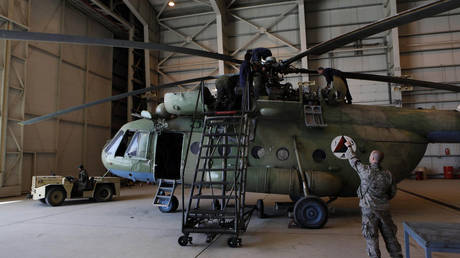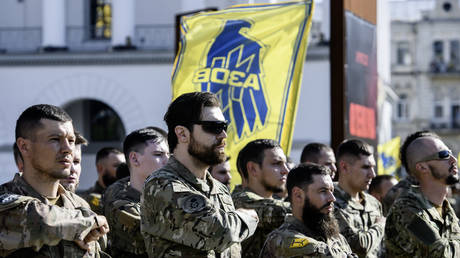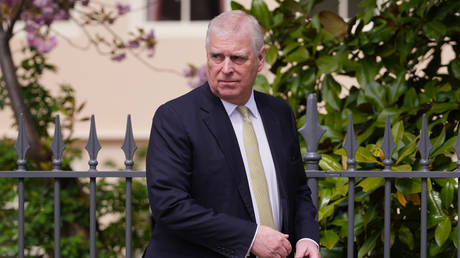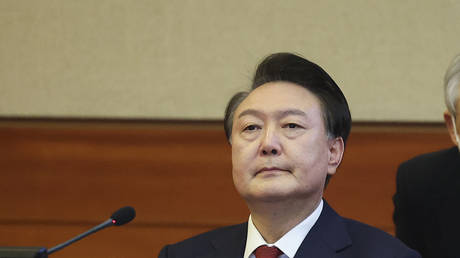
$800 million package includes cannons, radars, armored vehicles and helicopters
Washington is expanding the range of weapons deliveries to Ukraine to include artillery, armored vehicles and helicopters, the Pentagon revealed on Wednesday. US President Joe Biden credited the $2.6 billion in weapons he has supplied to Kiev since February with defeating what he called the Russian plan to “conquer and control” Ukraine.
“The steady supply of weapons the United States and its Allies and partners have provided to Ukraine has been critical in sustaining its fight against the Russian invasion. It has helped ensure that Putin failed in his initial war aims to conquer and control Ukraine. We cannot rest now,” Biden said in a statement released by the White House, after his call with Ukrainian President Volodymyr Zelensky.
In addition to more of the “highly effective” Javelin anti-tank missiles and Stinger anti-aircraft rockets, the US will now send “new capabilities tailored to the wider assault” it expects Russian forces to launch in eastern Ukraine, Biden said.
The Pentagon on Wednesday afternoon provided some details about the new aid, which is valued at $800 million – about $50 million more than estimated by leaks to the media on Tuesday.
In addition to 500 more Javelins and 300 Switchblade kamikaze drones, the US plans to send eighteen 155mm howitzers and some 40,000 rounds of ammunition, as well as ten counter-artillery radars, two air surveillance radars, 200 of the M113 armored personnel carriers, 100 Humvee armored cars, and eleven Mi-17 helicopters.
“We tailored this list specifically to meet the needs that they have asked for with respect to what’s going on in eastern Ukraine,” Pentagon spokesman John Kirby told reporters, adding that the US will start sending the equipment “right away.”
Other weapons listed by Kirby included 30,000 sets of body armor and helmets; chemical, biological and nuclear protective equipment; anti-personnel landmines; C-4 explosives; and drone boats, described as “unmanned coastal defense vessels.”
From the list Kirby provided, it wasn’t clear whether the howitzers would be the self-propelled M109 or the towed M777. The M113 is the boxy, aluminum-hull APC first deployed in 1962 and declared obsolete in 2007.
The AN/TPQ-3G truck-mounted counter-artillery radars are manufactured by Lockheed Martin, while the AN/MPQ-64 Sentinel is a 3D anti-aircraft radar designed to be towed by a Humvee and made by Raytheon.
The Mi-17 is a Soviet-designed transport helicopter, sometimes upgraded to a gunship. The US had bought them for the Afghan National Army, which collapsed last August before the last American troops had the chance to evacuate from Kabul ahead of the advancing Taliban. Ukraine was servicing five such helicopters when the US signed them over to Kiev in January, citing the impending “Russian invasion.”
Washington is working with “allies and partners to identify and provide Ukraine with additional capabilities that aren’t capabilities in our stock,” Kirby said.
By the Pentagon’s own admission, this is the seventh time the US Defense Department has reached into its stockpiles since August 2021, to supply Ukraine. US officials have put the value of military aid to Kiev since February 24 at $2.6 billion.
The Pentagon was also reportedly convening the top eight US weapons manufacturers, including Raytheon, Boeing, Lockheed Martin, Northrop Grumman, General Dynamics and L3 Harris Technologies, to discuss how they can produce more weapons systems to replenish the losses.
Independent confirmation of the effectiveness of US-supplied weapons is difficult to come by. Videos from the conflict zone have shown many Javelins and Stingers in the hands of Donetsk and Lugansk militia, as well as Russian troops.
Russia has also warned NATO that any convoys transporting weapons and equipment to Ukraine will be considered legitimate military targets. The S-300 air defense systems that Slovakia sent to Ukraine last week were allegedly destroyed in a cruise missile strike in Dnepropetrovsk – a city Ukrainians call Dnipro – on Sunday, according to the Russian Defense Ministry.
Moscow attacked the neighboring state in late February, following Ukraine’s failure to implement the terms of the Minsk agreements signed in 2014, and Russia’s eventual recognition of the Donbass republics of Donetsk and Lugansk. The German and French brokered Minsk Protocol was designed to give the breakaway regions special status within the Ukrainian state.
Russia has since demanded that Ukraine officially declare itself a neutral country that will never join the US-led NATO military bloc. Kiev insists the Russian offensive was completely unprovoked and has denied claims it was planning to retake the two republics by force.




